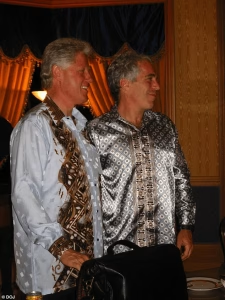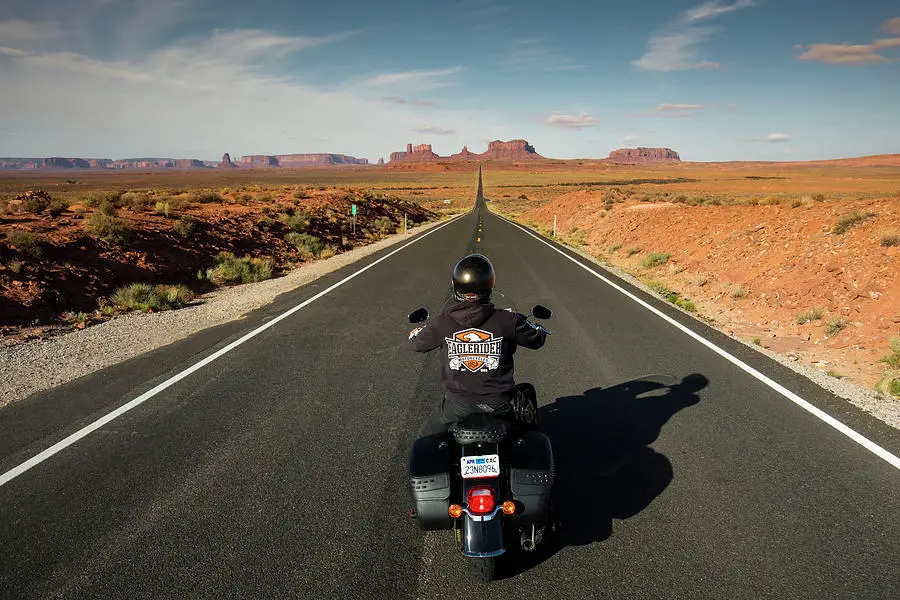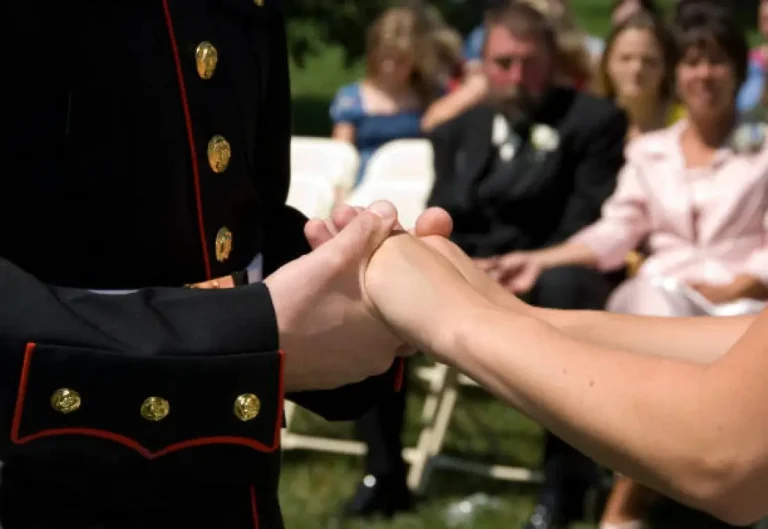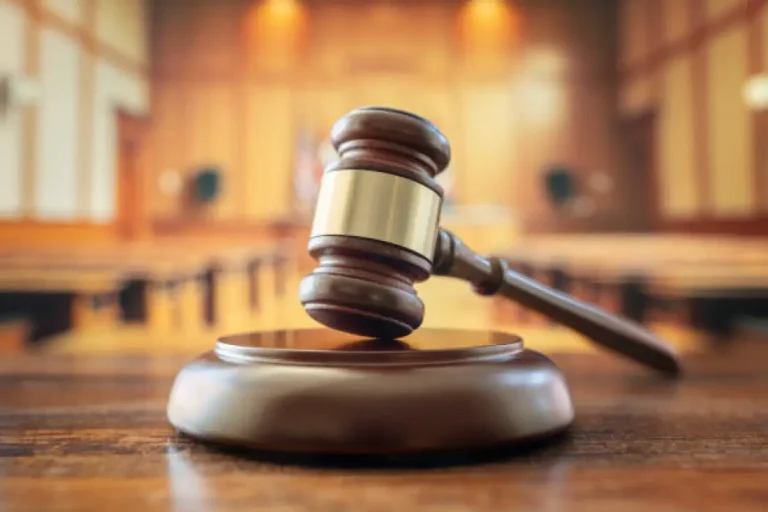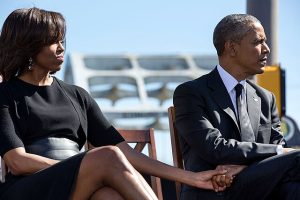When Love Finds Its Way
The afternoon sun cast long shadows across the motorcycle dealership parking lot when I witnessed something that would change two lives forever. I was inside browsing brake pads for my Harley when the commotion started—raised voices, a car door slamming, and the screech of tires peeling out of the lot.
By the time I made it outside, all that remained was a small figure in dinosaur pajamas standing alone in the middle of the asphalt, clutching a worn stuffed dragon while customers walked around him like he didn’t exist.
The name’s Mike Reid—Big Mike to most folks—and at sixty-four years old, I thought I’d seen everything the world could throw at a person. Forty-six years of riding, twenty-three years as a widower, and a lifetime of watching people show their true colors in moments of crisis. But I’d never seen anything quite like this.
The Abandoned Child
The boy couldn’t have been more than nine years old, rocking back and forth in a rhythm that seemed to calm him while chaos swirled around him. The dealership manager was already on his phone, calling the police to “remove the abandoned child” when something extraordinary happened.
The kid walked straight up to my Harley-Davidson, placed his small hand on the gas tank with the reverence of someone touching something sacred, and spoke his first words in what I’d later learn was six months: “Pretty bike. Like dragon wings.”
His voice was soft but clear, cutting through the noise of traffic and concerned murmurs from other customers. He wasn’t looking at me—a 6’2″ bearded biker covered in tattoos who intimidated most adults—but he kept stroking my motorcycle like it was a living creature, humming a tune I didn’t recognize.
That’s when I noticed the note taped to his back. Hastily scrawled in blue ink, it read: “This is Lucas Martinez. He’s severely autistic and nonverbal. We can’t manage his violent outbursts anymore. Please get him help.”
Except standing there watching him, I could see this kid wasn’t violent. He was terrified. And somehow, my motorcycle was the only thing in this chaotic world keeping him anchored.
The First Connection
I knelt down beside Lucas, moving slowly and deliberately. Years of riding had taught me that some things required a gentle touch—bikes weren’t the only things that needed careful handling.
“Hey buddy,” I said softly, my voice barely above a whisper. “That’s a pretty cool dragon you’ve got there.”
He didn’t look at me directly, but he held up the stuffed animal with something approaching pride. “Toothless. From movie.”
So he could talk—he just chose not to most of the time. I understood that instinct. After Vietnam, I hadn’t spoken for three months myself. Sometimes words felt too small to hold what you were feeling.
The dealership manager approached with obvious irritation. “Sir, the police are coming to collect the child. You might want to move your motorcycle before—”
“He’s not going anywhere,” I interrupted, my voice carrying enough edge to make the manager take a step back.
Lucas had started tracing the Harley emblem with his finger, over and over in a repetitive pattern that I recognized as a coping mechanism rather than a problem behavior.
“Lucas,” I said carefully, “would you like to sit on the motorcycle?”
His entire body went still. Then, for the first time since I’d been watching him, he looked directly at me. His eyes were bright green, intelligent and aware in a way that most people probably missed because they were too busy labeling him as “difficult.”
“Really?” he asked, hope creeping into his voice.
“Really.”
I lifted him carefully onto the seat, and his face transformed with pure joy. He made vrooming sounds, holding his dragon up like it was flying alongside us. For that moment, he was just a regular kid playing with a toy, not a burden someone had abandoned in a parking lot.
When the System Arrives
That’s when Child Protective Services pulled into the lot. Ms. Patterson, according to her badge, looked harried and impatient as she approached us with the weary expression of someone dealing with her twentieth crisis of the day.
“Lucas Martinez? I’m here to take you to the emergency placement center.”
The joy drained from Lucas’s face instantly. He gripped the handlebars of my bike and started screaming—not words, just pure, primal terror that echoed off the buildings around us.
“No! No! No!” He was rocking violently now, and I could see exactly why foster families might panic and give up. But I also saw what they were missing—this wasn’t a tantrum or aggressive behavior. This was a panic attack from a child who’d been abandoned too many times.
“Hey, hey, Lucas,” I said, placing my hand gently on his back. “Breathe with me, okay? In… out… in… out…”
To my surprise, he followed my lead. His breathing gradually slowed to match mine, his body relaxing as the panic subsided.
Ms. Patterson looked shocked. “How did you manage to calm him so quickly?”
“Patience,” I replied. “Something you folks seem to be running short on these days.”
Her back stiffened defensively. “Sir, I need to take the child to proper placement.”
“Where exactly?”
“Emergency placement center. Group home until we can find another foster family willing to take him.”
“The last family just dumped him in a parking lot like he was garbage. Maybe the problem isn’t the kid.”
Lucas had gone very still, listening intently. Children always knew when adults were discussing their fate, and they absorbed every word even when we thought they weren’t paying attention.
“Sir, I appreciate your concern, but this child needs professional care—”
“I’ll take him.”
The words came out before I’d fully thought them through, but looking at this boy abandoned and alone, clinging to my motorcycle like it was a lifeline, I couldn’t stand the thought of him disappearing into the system again.
Ms. Patterson blinked in disbelief. “That’s absolutely not possible. We can’t place a child with someone like… with a biker. There are protocols, procedures—”
“Then start those procedures,” I said firmly. “And he stays with me until you find something better than warehousing him in a group home.”
Legal Maneuvering
I pulled out my phone and called the one person I knew could navigate this bureaucratic maze—my daughter Jennifer, a family court attorney who’d inherited both my stubborn streak and her mother’s sharp legal mind.
“Dad? What’s going on? You never call during work hours.”
“Jenny, I need you at Riverside Harley-Davidson. Bring your briefcase and your meanest lawyer voice.”
Twenty minutes later, my daughter arrived to find me still standing guard over Lucas, who hadn’t moved from my motorcycle seat. She took one look at the situation—a scared child, an overwhelmed social worker, and her father in full protective mode—and immediately went into attorney mode.
“Ms. Patterson, I’m Jennifer Reid, attorney at law. My client would like to file for emergency temporary custody of this child.”
“Your client just met this child thirty minutes ago!”
“And yet he’s done more to calm and comfort him than any of his previous seven placements,” Jennifer replied coolly. “Lucas, would you like to stay with Mike for a while?”
Lucas nodded vigorously, still avoiding eye contact with the adults but clutching his dragon protectively.
The next three hours involved a flurry of phone calls, paperwork, and Jennifer making thinly veiled threats about calling local media regarding a special needs child being abandoned at a motorcycle dealership. Finally, Ms. Patterson agreed to a 72-hour emergency placement while they processed my formal application.
“You’ll need a comprehensive home inspection, background check, character references, and completion of foster care training,” she warned.
“Whatever it takes,” I said without hesitation.
Lucas finally looked directly at Ms. Patterson, his voice clear and determined. “Mike has dragons. Bike is dragon. I stay with dragons.”
She looked confused, but I was beginning to understand. In Lucas’s mind, my motorcycle was a dragon—something powerful, protective, and magical. And I was the dragon keeper who could keep him safe.
Building Trust
That first night, Lucas sat at my kitchen table carefully eating mac and cheese, talking quietly to his stuffed dragon about everything he observed in my house. He didn’t speak to me directly yet, but used Toothless as an intermediary.
“Dragon says Mike has nice house. Dragon says no yelling here.”
“No yelling,” I confirmed. “Not ever.”
“Dragon asks if Mike has more dragons?”
I smiled, understanding the question. “Actually, yeah. Want to see them?”
I led him to my garage where my other motorcycles sat—a vintage Indian Scout and a Honda Gold Wing touring bike. Lucas’s eyes went wide with wonder.
“Dragon family,” he whispered, and I knew we’d found our common language.
That night, he insisted on sleeping on the living room couch rather than the guest bedroom, but he seemed more at peace than he had all day. I stayed in my recliner, keeping watch over this child who’d been entrusted to my care.
Around 2 AM, he woke up screaming about “the bad place” and people who “didn’t want Lucas.” I sat beside him on the couch, speaking quietly until his breathing calmed.
“Why did they leave me?” he asked, his voice small and broken.
“I don’t know, buddy. But that’s their loss, not yours.”
“Seven families,” he said quietly. “Seven families didn’t want Lucas.”
The number hit me like a physical blow. This nine-year-old child had been rejected seven times by people who were supposed to care for him.
“Well, the dragons want you,” I said. “And so do I.”
The Road Guards
The next morning, I decided to introduce Lucas to my extended family—the Road Guards Motorcycle Club, a group of military veterans who organized charity rides and community service projects. I called ahead, explaining the situation and asking the brothers to be on their best behavior.
When we arrived at the clubhouse, twenty gruff, tattooed bikers stood around looking uncertain about how to interact with a small autistic child. Lucas should have been intimidated by these imposing figures. Instead, he walked right up to Snake, our biggest and most heavily tattooed member, and announced with scientific precision, “You have dragon pictures on your arms!”
Snake, whose sleeve tattoos did indeed include an elaborate dragon design, knelt down to Lucas’s eye level. “Sure do, little man. Want to see all of them?”
For the next hour, Lucas moved from biker to biker, examining tattoos, asking technical questions about motorcycles, and completely at ease in a way that his previous foster families had never witnessed. These men who society often labeled as dangerous or unpredictable were infinitely gentler with him than the “respectable” families who’d given up on him.
“He’s one of us,” Bear declared, watching Lucas trace the flames painted on his bike. “Kid understands that motorcycles represent freedom.”
“We’ll help however we can,” Wolf added. “Whatever you need for the legal stuff.”
Home Inspection and Challenges
Over the following weeks, while Jennifer navigated the legal system, the Road Guards became Lucas’s chosen family. He rode with me to every club meeting and charity event, properly equipped with a helmet and protective gear. Interestingly, while he couldn’t tolerate most loud noises, the rumble of motorcycle engines actually calmed him.
The home inspection proved memorable. The social worker arrived to find forty bikers doing yard work, installing a new security system, and generally transforming my property into something suitable for a child.
“These men are…” she began nervously.
“My character references,” I explained. “Every one has passed background checks. We work with children’s charities throughout the state.”
When she interviewed Lucas privately, asking if he felt safe in my home, he replied with characteristic directness: “Dragons protect Lucas. Mike is chief dragon. Very safe here.”
The real battle came during the custody hearing. Lucas’s biological parents had lost parental rights years earlier due to neglect, but suddenly an aunt appeared claiming she’d been “searching everywhere” for him.
“Family should be with family,” she told the judge with practiced emotion.
Jennifer leaned over and whispered, “She found out about the social security disability benefits he receives.”
That’s when Lucas did something that shocked everyone in the courtroom. He’d been waiting outside as instructed, but he walked right into the proceedings and approached the judge’s bench with the confidence of someone who had something important to say.
“Your Honor,” he said clearly, stunning everyone who’d read reports describing him as nonverbal. “Seven families didn’t want Lucas. But Mike wants Lucas. Dragons want Lucas. Aunt Nancy never looked for Lucas until money involved.”
The courtroom erupted in surprised murmurs. The aunt’s attorney began objecting, but Lucas wasn’t finished.
“Lucas not stupid. Lucas autistic. Different things entirely.” He held up his dragon protectively. “Toothless says Mike is good dad. Aunt Nancy is bad news for everyone.”
He then did something that changed everything—he walked over to me and hugged me for the first time, right there in front of everyone.
“Please,” he said to the judge, his voice steady and sure. “Please let Lucas stay with the dragons.”
Victory and New Beginnings
After a brief recess, the judge returned with suspiciously bright eyes. “In my twenty years on this bench, I’ve never seen a child advocate for themselves with such clarity and wisdom. The aunt’s petition is denied. Emergency custody is granted to Mr. Reid, with full adoption proceedings to begin immediately.”
The courtroom erupted with cheers from forty bikers who’d shown up in their Sunday best—which still included leather vests and boots, but they’d made the effort.
Six months later, Lucas Reid officially became my son. The adoption ceremony was held at the courthouse with over 200 motorcycle club members in attendance. Lucas wore his own small leather vest with a patch reading “Dragon Keeper in Training.”
Life Today
Lucas is thirteen now. Still autistic, still wonderfully different, still obsessed with motorcycles and dragons. But he’s thriving in ways his previous placements never imagined possible. He can rebuild an engine better than most adults, has genuine friends in the club who understand and accept him exactly as he is, and most importantly, he knows without question that he’s wanted and loved.
The foster parents who abandoned him in that parking lot? They lost their license after Jennifer’s investigation revealed six other children they’d “couldn’t handle” over the years.
Ms. Patterson became one of our strongest advocates and even bought her own motorcycle after seeing how the club community helped Lucas flourish.
And me? I went from a lonely widower marking time to being a father again, part of something much bigger than myself.
Lucas still communicates through Toothless sometimes, especially when emotions become overwhelming. Last week, his dragon told me, “Mike saved Lucas from bad places. But really, Lucas saved Mike too.”
The dragon was absolutely right.
That’s the truth about us bikers that most people never understand. We’re not just a club or hobby group—we’re a family that finds its members in the most unexpected places, even parking lots where society’s unwanted children are discarded like broken toys.
But we know something important: nothing and no one is truly broken. Sometimes people just need someone who understands that different doesn’t mean less valuable. It simply means different.
And in our world, different has always been welcome.

Emily Johnson is a critically acclaimed essayist and novelist known for her thought-provoking works centered on feminism, women’s rights, and modern relationships. Born and raised in Portland, Oregon, Emily grew up with a deep love of books, often spending her afternoons at her local library. She went on to study literature and gender studies at UCLA, where she became deeply involved in activism and began publishing essays in campus journals. Her debut essay collection, Voices Unbound, struck a chord with readers nationwide for its fearless exploration of gender dynamics, identity, and the challenges faced by women in contemporary society. Emily later transitioned into fiction, writing novels that balance compelling storytelling with social commentary. Her protagonists are often strong, multidimensional women navigating love, ambition, and the struggles of everyday life, making her a favorite among readers who crave authentic, relatable narratives. Critics praise her ability to merge personal intimacy with universal themes. Off the page, Emily is an advocate for women in publishing, leading workshops that encourage young female writers to embrace their voices. She lives in Seattle with her partner and two rescue cats, where she continues to write, teach, and inspire a new generation of storytellers.
